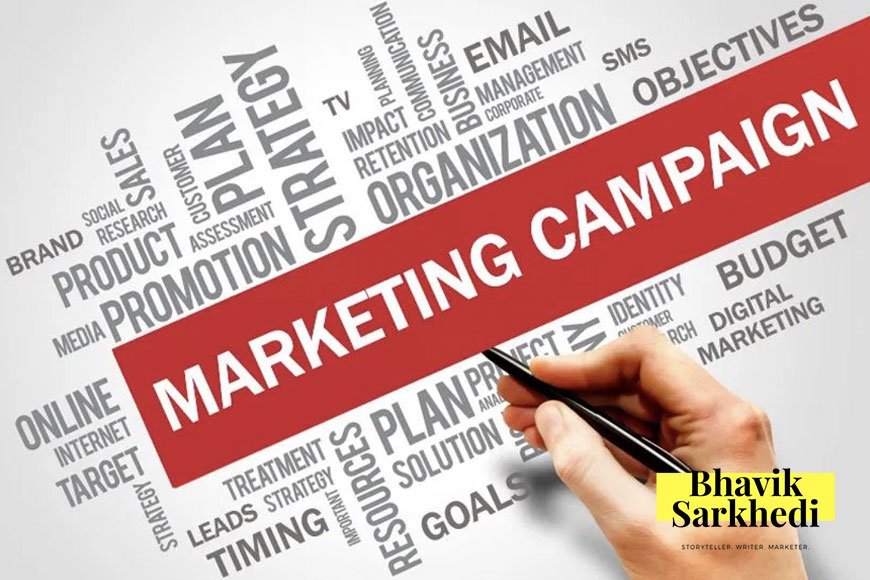The need for good-quality content has been a must for the last decade in the marketing and research domain. And since Google introduced several new algorithms like Penguin, Hummingbird, Fred, Payday, Panda, Intrusive Interstitial Updates, etc., this necessity has only accelerated. Gone are the days when poor quality content that held little to no value and benefit for the users flooded the internet. Now, if you do not provide services that the audience desire, it is almost impossible for you to gain visibility on the organic search page and SERPs.
To highlight and establish themselves as a reliable and influential brand in the commercial sector, many marketers and entrepreneurs have started to use content marketing as a part of their marketing schemes. Due to the immense popularity and demand of content marketing, more than half of B2B and B2C marketers are utilizing the principles of content creation and distribution strategy to gain the upper hand in their e-commerce business to make it reach greater heights of success.
So, if you are already in this group, you probably understand the tremendous advantages of content marketing in any field of business. And you must have also realized the importance of including it in your overall trade and corporation system. Maybe you also have a plan sought out to support this career.
But is knowing enough?
Nope. We must also do something in this direction.
Whether you are just starting to work in the content marketing field or have already been using it for some time, you can always make the most of it by deploying different ways and ideas to boost your sales and traffic.
Luckily, we have various content marketing tools to help you make your task process more effortless and flourishing. These tools are your best friend when it comes to knowing the ifs and buts of content marketing and how you can use these tips to gain the upper hand in the industry and establish yourself as a compelling content marketer. They also help reduce your burden by providing various uses in different sections, like SEO, traffic analytics, content creation, social media engagement, etc., and improve your work efficiency and consistency.
Below is the list of 9-such tools that every content marketer should have to help them get the best out of their time, skills, and energy.
And you also have a nice little bonus waiting for you at the end of this index! So keep reading ahead to know more.
1. ContentIdeator
Finding what content your audience is sharing couldn’t get any easier.
ContentIdeator is one of the most popular tools for researching and finding insights on virtual media. This tool covers every major content medium and allows you to search content by keywords, domain, region, platform, etc. By using it, you can not only discover content that resonates with your customers but use it to understand your social impact in the market and get a peek at your competitor’s creation strategy.
Special Features:
★ It covers every content channel, such as Blogs, Twitter, Forums, Instagram, YouTube, emails, and Facebook (Pinterest, LinkedIn, and Medium will also get launched soon). Thus you can create blogs and posts that connect with the users on a broader level.
★ It helps you find excellent topics you can write about and generate ideas that your audience will take great interest in reading and sharing.
★ You can find what content your audience is sharing and finding more pleasing.
2. Buffer
Build and grow your audience organically in an effortless way now!
On average, people today spend around 2.5 hours on social media. So, wouldn’t it be awesome if you could use this part to let them find your brand more easily? And Buffer lets you do just that. It is a content marketing app that helps you build and grow your audience on various media platforms. You get affordable and intuitive marketing tools you can utilize for finding your customers and connecting with them.
Special Features:
★ You can analyze your social media results in just a few clicks and use them to deliver engaging content.
★ Ease of scheduling your social media posts so you can collaborate and publish your campaigns while also focusing on other things.
★ You can also jump to hotkeys and comments and respond to your clients faster.
★ 24/7 support and advice from customer advocates and a supportive community via emails and social media for your business.
3. Canva
Design unique and eye-catching posts for everyone.
Canva is a designing tool that makes it easier for you to design professional posts and achieve your goal in a visually captivating way. It comes with thousands of professional templates and images of high quality you can use to get a gripping headstart in your work and bring your ideas to life.
Special Features:
★ Canva provides team folders that allow you to stay organized, manage content, and store brand assets in one place.
★ You can plan, create, schedule, and publish your stories and inspirations using Canva.
★ Thousands of templates to help you create your inspiration and share pridefully with others
★ It allows you to have real-time collaborations with people across departments, companies, and countries.
★ There’s a built-in comment option that you can use to resolve suggestions and issues in real-time.
4. Hemingway Editor
Make your writing bold and clear today to stand out in the content marketing industry.
The Hemingway editor is one-of-the-best content marketing tools you can use for editing your documents and posts. You can remove grammatical errors, format your text, and enhance its quality by using the app’s suggestions (in the form of different colored highlights). It also gives you a readability score that helps you improve your work and make them more engaging and easy to understand for the readers.
Special Features:
★ It highlights the lengthy and complex sentences or common errors in yellow.
★ The dense and complicated ones get highlighted in red for you to edit.
★ You can utilize a shorter word for the ones highlighted in purple and replace the weaker adverbs and phrases marked in blue.
★ Green marks the passive-voiced phrases in your sentence.
5. Google Analytics
Analyzing data for your business in one place just got easier!
Google Analytics is a web analytics service that allows you to use different free tools to analyze data for your business in one place and get tremendous benefits. Using it, you can make smarter decisions to promote your business and get immediate results in the long term.
Special Features:
★ It helps you understand your app and website users and use it to check the execution of your marketing strategy, content, products, etc.
★ You can access Google’s unique insights and ML abilities to get the most of your analytics and data.
★ By connecting it with Google’s publishing and advertising services, you can use these insights and get better business results.
6. Trello
Boost your team’s spirit and help move it forward through unique collaborations!
The Trello app allows you to collaborate, assign tasks, manage projects, and achieve new productivity heights in a short period. Whether in the high rising corporate world or the home office, you can easily handle and manage your team’s work through customizing tasks and performing together in project leadership.
Special Features:
★ Trello gives you the ability to set up and customize workflows in quick steps.
★ You can use the lists and boards to assign tasks, set assignments, create productivity metrics, set calendar meetings, etc.
★ You can manage, keep track of, and share your tasks through the Trello cards.
★ The power of automation makes it easier for you to handle your work and posts without making them tedious.
★ You and your team members can integrate Trello with other apps that you use to get power-ups and optimize your performance.
7. MailChimp
Sell your products and find customers with the right tools today.
Drive traffic, boost sales, and take your business to the next level using Mailchimp. Via this tool, you can get all the necessary marketing features and benefits to reach new consumers and sell your products. Whether a business, an idea, a dream, or a brand, you can grow your inspiration and help it bloom by showcasing it to the world on suitable channels.
Special Features:
★ You can build your emails, landing pages, social ads, postcards, etc., from one place and share your idea with everyone on fitting platforms.
★ Using Mailchimp, you can build a beautiful website with a custom domain for your business or brand and connect with the customers directly from your official site.
★ Automate your marketing by adding a personal touch and reaching out to the audience on the spot.
★ Manage your patrons, get creative tools, insights, analytics, etc., at your fingertips.
8. Ahrefs
The all-in-one SEO toolset is here to save the day!
The Ahref toolset is a powerful yet easy-to-master feature that can help you skyrocket your business sales. It helps you rank higher on the SERPs and organic search pages and get more traffic for your links and website. Whether a Junior Marketer or a SEP expert, anyone can get the best out of this tool in simple steps.
Special Features:
★ You can audit and optimize your website without investing too much time.
★ It makes analyzing your competitors easier.
★ It helps you find keywords your users are searching for online.
★ Ahrefs also helps you learn and gain valuable insight from the top-performing content in the industry.
★ You can track your progress through its rank tracker to know your performance and results.
9. HootSuite
Make your social media a superpower and get fantastic results!
Managing your social media couldn’t get any better without HootSuite. This tool allows you to save time by scheduling work across your virtual connections and viewing them in simple calendar mode. Thus, in this way, you can focus on your tasks and create quality content that blends better with your customers.
Special Features:
★ Using HootSuite, you can find your audience’s thoughts by keeping an eye on the latest trends and conversations.
★ You can invest in content that sits well with the customers and produce more of it to boost your sales.
★ It helps you respond faster to the users and collaborate with other channels to maximize results by working as a team.
And now, here’s your promised bonus!
Ulysses
Put an end to your distractions while writing now!
Ulysses is the ultimate writing app to help you kill the distractions while working. It has gone through numerous feature boosts to provide a distraction-free interface to help you maintain your writing flow and get your task done. It is available in 20 languages and provides plenty of inspiring features and tools anytime and anywhere to boost your productivity and keep the writing ball rolling.
Special Features:
★ Works on MAC, iPad, and iPhone.
★ Ulysses is beneficial for every writing format, be it your next big novel, a college essay, a work report, or a blog post.
★ The interface of this app is very minimalist to keep things simple for you and help the parts shuffle around like a book.
★ Convert your text into PDFs, word documents, and ebooks in just a click.
★ It comes with a built-in proofreader and editing assistant to check your grammatical errors and set the tone right for your content.
Conclusion
These content marketing tools are the easiest ways to help get the most engagement out of your work and creation. They don’t require you to spend much time, energy, and money on them to get satisfying and immediate results. You can pick the ones you find suitable to your needs and witness the results for yourself.
So, if you are already using these tools, that’s great! And if not, it’s time you got your hands on them and took your business, company, or brand to new peaks of success in the e-commerce and marketing industry.
![[Expanded] Every Content Marketer Should Use These 9 Tools](https://bhaviksarkhedi.com/wp-content/uploads/2022/07/tools-for-digital-marketer.jpg)
![5 Reasons Your Small Business Needs Content Marketing [Ranked]](https://bhaviksarkhedi.com/wp-content/uploads/2022/07/5-reasons-business-needs-content-marketing.jpg)

![The Future of Content Marketing [Expanded]](https://bhaviksarkhedi.com/wp-content/uploads/2022/07/future-of-content-marketing.jpg)

 Visual content continues to be one of the most effective digital marketing content types in 2024, especially when it comes to capturing attention and driving engagement. Infographics, images, and charts are not only visually appealing but also highly shareable, making them essential for enhancing your content marketing strategies and boosting SEO.
Visual content continues to be one of the most effective digital marketing content types in 2024, especially when it comes to capturing attention and driving engagement. Infographics, images, and charts are not only visually appealing but also highly shareable, making them essential for enhancing your content marketing strategies and boosting SEO. Staying competitive in 2024’s digital marketing landscape requires
Staying competitive in 2024’s digital marketing landscape requires